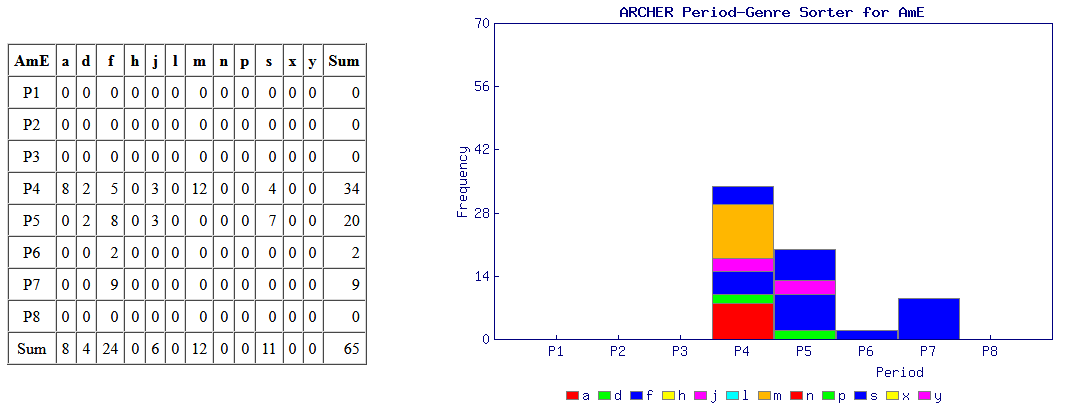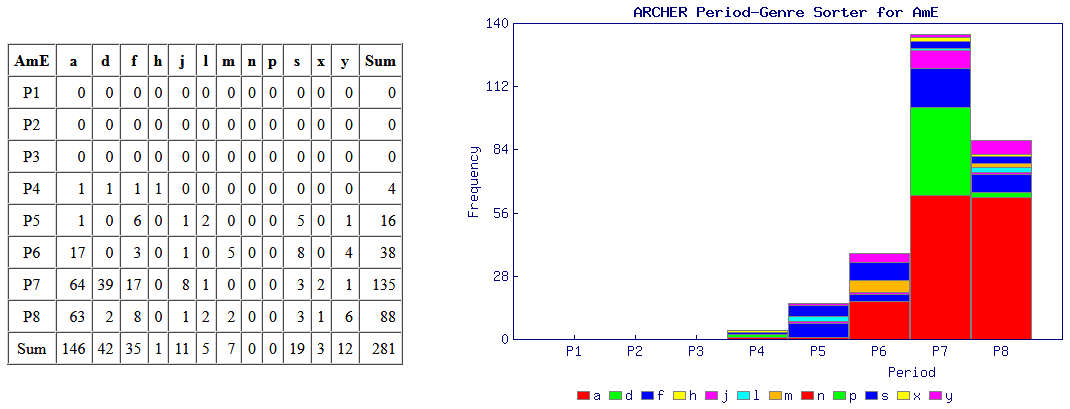(1) スペリングの英米差 (#244)
あくまで典型的な例として:
abridgment (AmE)/abridgement (BrE), accouterment/accoutrement, acknowledgment/acknowledgement, adapter/adaptor, aging/ageing, aluminum/aluminium, ameba/amoeba, analyze/analyse, anesthetic/anaesthetic, apologize/apologise, appall/appal, appetizer/appetiser, arbor/arbour, ardor/ardour, armor/armour, armorer/armourer, armory/armoury, artifact/artefact, authorize/authorise, ax/axe, behavior/behaviour, behoove/behove, caliper/calliper, calisthenics/callisthenics, canceled/cancelled, candor/candour, capitalize/capitalise, catalog/catalogue, center/centre, chamomile/camomile, check/cheque, checkerboard/chequer-board, chili/chilli, civilization/civilisation, civilize/civilise, clamor/clamour, clangor/clangour, clarinetist/clarinettist, color/colour, counselor/counsellor, cozy/cosy, curb/kerb (on a street), czar/tsar, defense/defence, demeanor/demeanour, dependent/dependant (noun), dialing/dialling, diarrhea/diarrhoea, disk/disc, distill/distil, dolor/dolour, draft/draught, economize/economise, enamor/enamour, endeavor/endeavour, enroll/enrol, enthrall/enthral, equalize/equalise, favor/favour, favorite/favourite, favoritism/favouritism, fervor/fervour, fiber/fibre, flavor/flavour, fulfill/fulfil, furor/furore, gage/gauge, gemology/gemmology, gray/grey, harbor/harbour, harmonize/harmonise, honor/honour, honorable/honourable, humor/humour, initialize/initialise, inquiry/enquiry, installment/instalment, instill/instil, jail/gaol, jeweler/jeweller, jewelry/jewellery, judgment/judgement, labor/labour, license/licence, liter/litre, maneuver/manoeuvre, marvelous/marvellous, memorize/memorise, misdemeanor/misdemeanour, mobilize/mobilise, mold/mould, molding/moulding, mom/mum, mustache/moustache, naught/nought, neighbor/neighbour, neighborhood/neighbourhood, normalize/normalise, odor/odour, organize/organise, pajamas/pyjamas, paralyze/paralyse, parlor/parlour, pasteurize/pasteurise, peddler/pedlar, percent/per cent, persnickety/pernickety, plow/plough, polarize/polarise, practice/practise (verb), pretense/pretence, program/programme, pulverize/pulverise, rancor/rancour, realize/realise, recognize/recognise, rigor/rigour, rumor/rumour, savor/savour, savory/savoury, skeptic/sceptic, skillful/skilful, specter/spectre, spilled/spilt, splendor/splendour, story/storey (of a building), succor/succour, sulfur/sulphur, symbolize/symbolise, sympathize/sympathise, theater/theatre, tire/tyre, traveler/traveller, tumor/tumour, utilize/utilise, valor/valour, vapor/vapour, vaporize/vaporise, vigor/vigour, vise/vice (tool), willful/wilful, worshiper/worshipper
象徴的な意味でアメリカ英語を創った Noah Webster (1758--1843) について,主として『英語学人名辞典』 (376--77) に拠り,伝記的に紹介する.
Noah Webster は,1758年,Connecticut 州は West Hartford で生まれた.学校時代に学業で頭角を表わし,1778年,Yale 大学へ進学する.在学中に独立戦争が勃発し,新生国家への愛国精神を育んだ.
大学卒業後,教員そして弁護士となったが,教員として務めていたときに,従来の Dilworth による英語綴字教本に物足りなさを感じ,自ら教本を執筆するに至った.A Grammatical Institute of the English Language と題された教本は,第1部が綴字,第2部が文法,第3部が読本からなるもので,この種の教材としては合衆国初のものだった.全体として愛国的な内容となっており,国内のほぼすべての学校で採用された.第1部の綴字教本は,後に The American Spelling Book として独立し,100年間で8000万部売れたというから大ベストセラーである.表紙が青かったので "Blue-Backed Speller" と俗称された.この本からの収入だけで,Webster は一生の生計を支えられたという.
Webster は,言論を通じて政治にも関与した.1793年,New York で日刊新聞 American Minerva (後の Commercial Advertiser)および半週刊誌 Herald (後の New York Spectator)を発刊し,Washington 大統領の政策を支えた.後半生は,Connecticut 州の New Haven と Massachusetts 州の Amherst で過ごした.
言語方面では,1806年に A Compendious Dictionary of the English Language を著わし,1807年に A Philosophical and Practical Grammar of the English Language を著わした.Compendious Dictionary では,すでに綴字の簡易化が実践されており,favor, honor, savior; logic, music, physic; cat-cal, etiquet, farewel, foretel; ax, disciplin, examin, libertin; benum, crum, thum (v.) / ake, checker, kalender, skreen; croop, soop, troop; fether, lether, wether; cloke, mold, wo; spunge, tun, tung などが見出しとして立てられている.
1807年からは大辞典の編纂に着手し,途中,作業のはかどらない時期はあったものの,1828年についに約7万項目からなる2巻ものの大辞典 An American Dictionary of the English Language が出版された.これは,Johnson の辞書の1818年の改訂版よりも約1万2千項目も多いものだった.Compendious Dictionary に採用されていた簡易化綴字の多くは,今回は不採用となったが,いくつかは残っており,それらは現代にまで続くアメリカ綴字となった.語源記述に関しては,Webster は当時ヨーロッパで勃興していた比較言語学にインスピレーションを受け,多くの単語に独自の語源説を与えたが,実際には比較言語学をよく理解しておらず,同辞典を無価値な記述で満たすことになった.
性格としては傲岸不遜な一面があり,人々に慕われる人物ではなかったようだが,アメリカ合衆国の独立を支えるべく「アメリカ語」の独立に一生を捧げた人生であった.
以下,Webster の主要な英語関係の著作を挙げておく.
- A Grammatical Institute of the English Language: Part I (1783) [and its later editions: The American Spelling Book (1788) aka "Blue-Backed Speller"; The Elementary Spelling Book (1843)]: 綴字教本
- A Grammatical Institute of the English Language: Part II (1784): 文法教本
- A Grammatical Institute of the English Language: Part III (1785): 読本
- Dissertations on the English Language, with Notes Historical and Critical (1789): 綴字改革の実行可能性と必要性を説く
- A Collection of Essays and Fugitive Writings (1790): 独自の新綴字法で書かれた
- A Compendious Dictionary of the English Language (1806): 独自の新綴字法で書かれた
- A Philosophical and Practical Grammar of the English Language (1807)
- An American Dictionary of the English Language, 2 vols. (1828)
- An Improved Grammar of the English Language (1831)
- Mistakes and Corrections (1837)
ウェブスター語録
(1) The author wishes to promote the honour and prosperity of the confederated republics of America; and cheerfully throws his mite into the common treasure of patriotic exertions. This country must in some future time, be as distinguished by the superiority of her literary improvements, as she is already by the liberality of her civil and ecclesiastical constitutions. Europe is grown old in folly, corruption and tyranny....For America in her infancy to adopt the present maxims of the old world, would be to stamp the wrinkles of decrepid age upon the bloom of youth and to plant the seeds of decay in a vigorous constitution. (Webster, Preface to A Grammatical Institute of the English Language: Part I (1783) as qtd. in Baugh and Cable 357)
(2) The question now occurs; ought the Americans to retain these faults which produce innumerable inconveniences in the acquisition and use of the language, or ought they at once to reform these abuses, and introduce order and regularity into the orthography of the American tongue? . . . . a capital advantage of this reform . . . would be, that it would make a difference between the English orthography and the American. . . . a national language is a band of national union. . . . Let us seize the present moment, and establish a national language as well as a national government. (Webster, Appendix to Dissertations on the English Language, with Notes Historical and Critical (1789) as qtd. in Graddol 6; #468)
(3) It is not only important, but, in a degree necessary, that the people of this country, should have an American Dictionary of the English Language; for, although the body of the language is the same as in England, and it is desirable to perpetuate that sameness, yet some difference must exist. Language is the expression of ideas; and if the people of our country cannot preserve an identity of ideas, they cannot retain an identity of language. Now an identity of ideas depends materially upon a sameness of things or objects with which the people of the two countries are conversant. But in no two portions of the earth, remote from each other, can such identity be found. Even physical objects must be different. But the principal differences between the people of this country and of all others, arise from different forms of government, different laws, institutions and customs...the institutions in this country which are new and peculiar, give rise to new terms, unknown to the people of England...No person in this country will be satisfied with the English definitions of the words congress, senate and assembly, court, &c. for although these are words used in England, yet they are applied in this country to express ideas which they do not express in that country. (Webster, Preface to An American Dictionary of the English Language (1828) as qtd. in Baugh and Cable 358)

